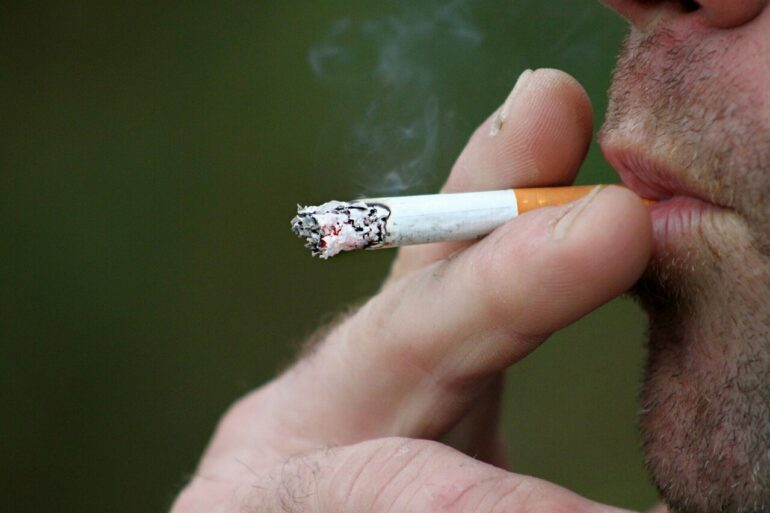Smoking can have a serious impact on the effect of the treatment of periodontitis—a widespread condition that leads to degradation of the teeth’s supportive tissue and, in serious cases, to loss of the teeth.
This is shown by a new study from Aarhus University which has just been published in the Journal of Dental Research.
The researchers studied the effect of different levels of smoking on the clinical results of the treatment of more or less advanced cases of periodontitis.
The study shows that heavy smokers with the most severe forms of inflammation obtained no benefit from the treatment, while heavy smokers with moderate periodontitis only had a 50 percent effect from the treatment, compared to smokers with less tobacco consumption.
“To our surprise, we could see that the disease had actually grown worse in some parameters in the hardest-hit group, despite the fact that this particular group had received the most extensive, individually-designed treatment,” says Julie Pajaniaye MHH, a dental hygienist and one of the authors behind the study.
It is estimated that around 40 percent of the population is affected by periodontitis, but there is a great deal of variation in how severely the disease develops in each individual patient. Around 18 percent of Danes smoke on a daily basis, or occasionally.
The treatment of the disease is adapted to the individual patient, including deep cleansings of the affected teeth, information about the harmful effects of smoking and, in some cases, surgery.
According to Julie Pajaniaye, the study illustrates the need for politicians and decision-makers to better incorporate referrals to smoking cessation courses in the treatment of periodontitis when developing new clinical guidelines and performance descriptions.
“This is completely new knowledge for the country’s dental clinics, and it should be taken into account when treatment is being planned for the individual patients,” she says.
Dentists and dental hygienists currently refer patients to quit-smoking courses only to a limited extent as part of the treatment of periodontitis.
This should be changed, according to Julie Pajaniaye—not least because, for the first time, the study shows that in the case of heavy smokers, a worsening of the disease may occur during a period of active treatment.
“As a heavy smoker with periodontitis, it is very important to understand that working towards stopping smoking is a crucial step in the effective treatment of the disease,” says Julie Pajaniaye.
More information:
F.R.M. Leite et al, Effect of Smoking Exposure on Nonsurgical Periodontal Therapy: 1-Year Follow-up, Journal of Dental Research (2022). DOI: 10.1177/00220345221135100
Citation:
Study: Heavy smokers with severe periodontitis receive no benefit from treatment (2023, January 26)



